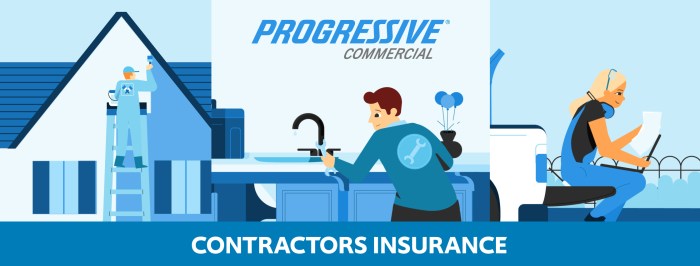Delving into the world of life insurance for those above 50 brings about a myriad of options and considerations. Let's explore the nuances and essential aspects of choosing the right life insurance at this stage in life.
As we uncover the types of policies, key factors to ponder, and tips for finding the best coverage, the journey to securing the ideal life insurance after 50 unfolds.
Understanding Life Insurance for Individuals over 50

Life insurance becomes increasingly important for individuals over 50 as they enter a stage where financial responsibilities and planning for the future are crucial. It provides a way to ensure financial security for loved ones and cover any outstanding debts or final expenses.
Key Differences in Life Insurance Options
- Term Life Insurance: Provides coverage for a specific period, typically 10-30 years, and offers a death benefit if the policyholder passes away during the term.
- Whole Life Insurance: Offers lifelong coverage with a cash value component that grows over time and can be borrowed against.
- Guaranteed Issue Life Insurance: No medical exam required, making it easier for individuals with health issues to obtain coverage, but tends to have higher premiums and lower coverage amounts.
Factors for Choosing the Right Life Insurance
- Health Condition: The state of health plays a crucial role in determining the type of life insurance and premium rates.
- Financial Obligations: Consider existing debts, mortgage payments, and future financial needs to determine the coverage amount required.
- Rates and Premiums: Compare rates from different insurers to find a policy that is affordable and offers adequate coverage.
- Beneficiary Needs: Evaluate the financial needs of beneficiaries to ensure they are adequately protected in the event of your passing.
Types of Life Insurance Policies for Individuals over 50
When it comes to choosing a life insurance policy for individuals over 50, there are several options available. The two most common types of life insurance policies are term life insurance and whole life insurance. Each type has its own set of benefits and drawbacks, especially when considering the needs of individuals in this age group.
Term Life Insurance
Term life insurance provides coverage for a specific period, typically ranging from 10 to 30 years. It is generally more affordable compared to whole life insurance because it does not accumulate cash value. For individuals over 50, term life insurance can be a suitable option if they are looking for coverage for a specific period, such as until retirement or until their mortgage is paid off.
- Benefits of Term Life Insurance:
- Lower premiums compared to whole life insurance.
- Flexible coverage length to match specific needs.
- Simple and straightforward policy structure.
- Drawbacks of Term Life Insurance:
- No cash value accumulation.
- Premiums may increase significantly when renewing at an older age.
- No coverage after the term ends unless renewed at a higher cost.
Whole Life Insurance
Whole life insurance provides coverage for the entire lifetime of the policyholder. It also includes a cash value component that grows over time, offering a form of investment. For individuals over 50, whole life insurance can provide lifelong coverage and potentially serve as an estate planning tool.
- Benefits of Whole Life Insurance:
- Lifetime coverage without the need for renewal.
- Accumulation of cash value over time that can be borrowed against.
- Potential for dividends or investment growth.
- Drawbacks of Whole Life Insurance:
- Higher premiums compared to term life insurance.
- Complex policy structure with various fees and charges.
- Potential for lower returns compared to other investment options.
Factors to Consider When Choosing Life Insurance after 50
When selecting life insurance after the age of 50, there are several key factors to consider to ensure you choose the right policy for your needs.
Health Conditions Impact
Health conditions play a significant role in determining the type of life insurance policy you can qualify for and the premiums you will pay. Pre-existing conditions may limit your options or result in higher premiums.
Financial Goals and Dependents
Consider your financial goals and the needs of your dependents when choosing life insurance. The coverage amount should be sufficient to cover outstanding debts, funeral expenses, and provide financial support to your loved ones.
Tips for Finding the Best Life Insurance Policy after 50
When it comes to finding the best life insurance policy after turning 50, there are some key tips to keep in mind to ensure you make the right decision for your financial future.
Assessing Financial Stability and Reputation of Insurance Providers
Before committing to a life insurance policy, it is crucial to research and assess the financial stability and reputation of the insurance providers. Here are a few steps to consider:
- Check the financial ratings of the insurance company from independent rating agencies such as A.M. Best, Standard & Poor's, or Moody's.
- Look into the company's track record of paying out claims promptly and efficiently.
- Read reviews and testimonials from other policyholders to gauge customer satisfaction and service quality.
Reviewing and Updating Life Insurance Policies Regularly
As you age, your financial needs and obligations may change, making it essential to review and update your life insurance policy regularly. Here are some reasons why this is important:
- Life events such as marriage, the birth of a child, or retirement may necessitate adjustments to your coverage amount.
- Changes in health or lifestyle habits may impact your insurability or premium rates.
- Regularly reviewing your policy ensures that it aligns with your current financial goals and obligations.
Closing Notes

In conclusion, the quest for the perfect life insurance post-50 involves understanding the options, aligning with personal needs, and staying informed. With this guide, navigating the realm of life insurance for individuals over 50 becomes a more manageable and informed process.
Essential FAQs
What are the key differences between term life insurance and whole life insurance for individuals over 50?
Term life insurance provides coverage for a specific period, while whole life insurance covers you for your entire life and includes a cash value component.
How do health conditions impact the choice of life insurance policy for individuals over 50?
Health conditions can affect premiums and eligibility for certain types of policies. It's important to disclose any health issues to ensure you get the right coverage.
Why is it crucial to review and update life insurance policies regularly after 50?
Reviewing and updating policies ensures that your coverage aligns with your current financial situation and needs, avoiding any gaps in protection.









